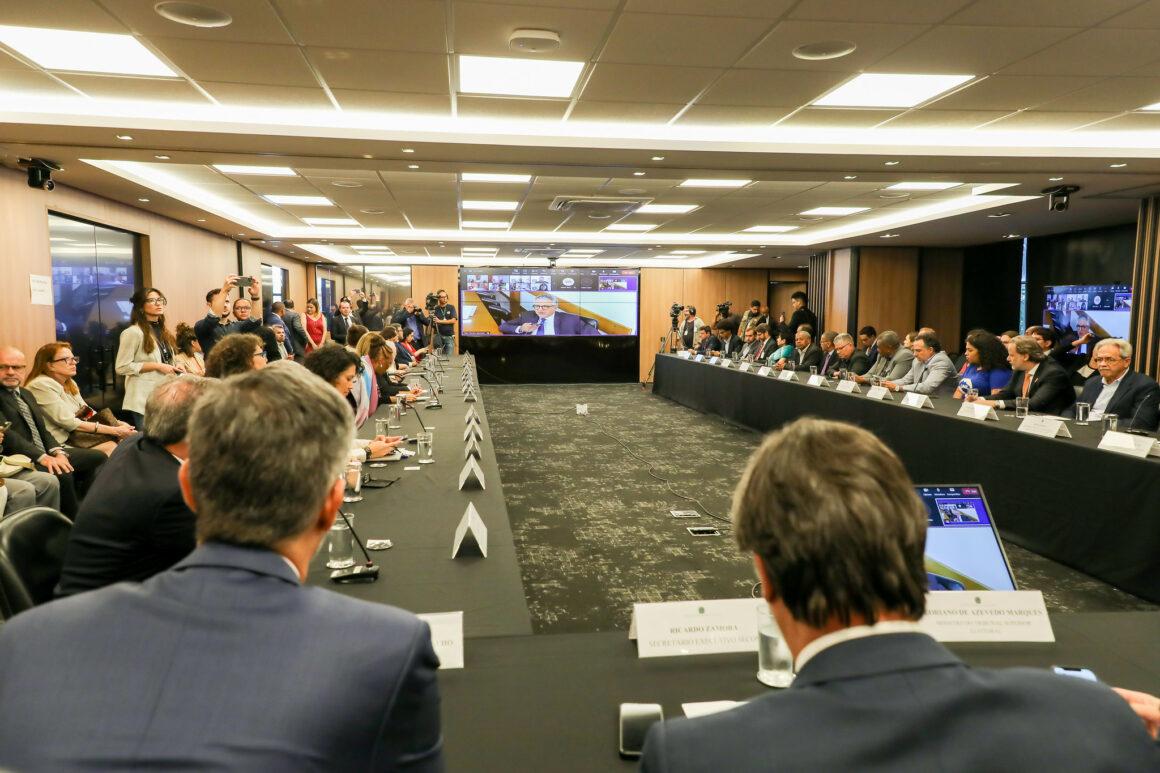President of H360 speaks at the Commission for Rights and Democracy of Lula’s “Conselhão”
On August 22, the president of the Humanitas360 Institute, Patrícia Villela Marino, participated in the installation of the Thematic Commission on Rights and Democracy, which is part of the Council for Sustainable Economic and Social Development (CDESS), recreated this year by the government of Luiz Inácio Lula da Silva. Held in a hybrid form, the ceremony was attended by ministers Flávio Dino (Justice and Public Security) and Alexandre Padilha (Institutional Relations), in addition to representatives of civil society that make up the so-called “Conselhão”. In her speech, which was published in text form on LinkedIn, Patrícia Villela Marino highlighted the importance of community participation in the construction of the national public security policy. Read it below:
It is with great enthusiasm that I participate in the installation ceremony of this Commission, with the presence of Minister Flávio Dino – for whom I am enormously grateful and I miss the accountability meetings at the Palácio dos Leões – and Minister Alexandre Padilha, whose skill in coordination and articulation enhances this movement to rescue the Council. Today, I have the task of talking briefly about the importance of community participation in the construction of the national public security policy, a theme that has guided my work at the head of the Humanitas360 Institute for years.
I firmly believe that any public policy in the sector will only be effective if it is inclusive, participatory and centered on human rights. It is urgent to overcome in Brazil the common sense that violence produces order. The justification of violence not only does not produce order, but also breaks the republican contract, generating more violence in new forms, such as the militiaization of force itself. Placing human rights at the center of these policies is the only way to guarantee respect for the dignity of all citizens, regardless of their ethnic origin, gender, religion, sexual orientation or socioeconomic status.
To this end, it is urgent to build more community-based and less militarized control forces, whose main role is to serve and protect the population, and not to act as a force of repression. This will only be possible if we invest in the training of all public safety professionals, so that they can deal with the enormous challenges of their daily lives in a more peaceful and respectful way, in a safer way for themselves and their families.
As for the prison system, a topic that touches me in a special way, I defend the importance of comprehensive programs for the rehabilitation of people deprived of liberty and those who have been released from prison, offering them opportunities to access health, education, professional training and income – with emphasis on their integration to bioeconomy, a field that offers the best prospects for work in Brazil in the 21st century. Only in this way, by practicing regenerative capitalism, can we break the cycle of criminality with innovation and give these people a chance to rebuild their lives.
Transparency in public security actions, with emphasis on the use of body cameras by security agents, and the accountability of government bodies, are also essential to create an environment of trust between the police and the community, facilitating a closer and more effective collaboration.
Therefore, investment in technology and data analysis to identify crime patterns, plan more effective interventions and monitor the impact of actions taken, is also key to fighting crime, as well as restoring respect and civility in controlling the use of force.
All this, however, is not enough to make Brazil a safer country. Our society also needs to attack the structural causes of violence, such as racism, socioeconomic inequalities, social discrimination and lack of access to education, sanitation, health and job opportunities – which, when they are not guaranteed by the Rule of Law within the republican contract, are offered outside it by organized crime.
I believe that this Commission on Human Rights and Democracy can make a decisive contribution to all these guidelines, and from now on I place myself at the service of each and every one so that together we can build a safer and fairer country for all.
Thank you very much!

